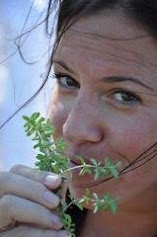Every year around this time, the anniversary of my mother’s death weighs heavily on my mind. Some years are easier than others. This is not an easy one. Even though next Monday marks the 20th anniversary of her death, I can still remember every day-by-day detail of her bout with lung cancer from diagnosis (August 31) to death (November 8) like it was yesterday. It's a burden I wish like hell I didn't have, yet I'm terrified to forget a single detail, because it would mean giving up some part, no matter ugly and awful, of my brief time with her.
My mother, Christine Ayn (Ehrensberger) Pfeuffer passed away when she was 38 years old. She’d been diagnosed with lung cancer less than three months before her death. I was a senior in high school and had cut school that day (as I frequently did in the ‘My mom is dying and you can’t make me come to school’ era). As I tooled around Berwyn, Pennsylvania in my mother’s, then mine by default, Chevy Blazer, I knew she died the minute Lynard Skynard’s “Freebird” come on the radio. You see, this song came on the radio at several pivotal moments during my mother’s sickness, and well, when it came on at 10:38 a.m. the day after I said a pre-emptive good-bye the night before at Fox Chase Cancer Center, I just knew. I knew.
Operating strictly on adrenaline-fueled emotional auto-pilot, I drove to Conestoga High School, because I knew people would be looking for me. I parked my car in my designated parking space and walked toward the school where my douchebag vice principal, David Cowburn was already waiting for me on the front steps. He tried to break the news and offer some condolences, but I already knew, and pushed past him to find my boyfriend, Marc. I barged into Marc’s (I forget what) class and broke the news.
From there, I raced over to the middle school to tell my younger sister, who handled the news by breaking into hysterics at her locker, claiming no one told her “she was going to die.” Fuck. That may be the pivotal moment when my life changed forevermore in ways I never imagined possible.
You see everyone deals with death differently, and believe me, everyone in my family did. As for me, I’ve see-sawed with depression and trust issues for decades as a result of my mother’s death. I have a hard time with love and tend to sabotage relationships. As a result, I have no intention of ever getting married or having children.
Truthfully, if you asked me 20 years ago, I never thought I’d live to be 40 years old. I don’t really know why, but for some reason, that always seemed like a reasonable expiration date and that I'd be able to accomplish everything I wanted to do with my life within this window of time. And as I near my 38th birthday, the same age my mother was when she died, my head spins with weighty state of affairs thoughts and reassessments of my priorities. Rest assured, she didn’t just leave me with a therapy-worthy load of emotional baggage – I also walked away some positive lessons that have stuck with me over the years.
Two weeks before she died, I asked her if she had any regrets (pretty insightful for a 17-year-old in retrospect). She replied, “I never went to Europe…and I can never have sex again.” Her words have inspired me to travel and live a life with purpose, intention and without regret. I’ve also made it a point to never hold back from having really good sex.
My mother is the reason why I wanderlust, the reason I volunteer and give back and the reason I live large and out loud and like every day is my last. One lesson I’ve learned is that you can love someone completely and unconditionally and they can be gone the next day. Without running the risk of sounding too Oprah, my advice is to love and live like there is no tomorrow, because you never fucking know. Even 20 years later, I think about this loss every single day. It’s not easy, but it’s part of who I am and as this big round number anniversary nears within sniffing distance, I want to honor my mother for being a big part of my life for 17, too brief years on this planet, and every day beyond. I miss you.
Christine Ayn (Ehrensberger) Pfeuffer 1952-1991



















